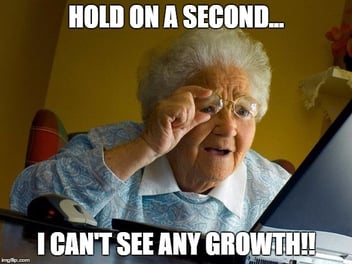
Are Your Company’s Social Media Activities Breaking the Law?
Most startups know their industry inside and out, but they’re not experts when it comes to the law. It’s easier than you might think to cross a line that leads to a lawsuit for copyright infringement or reputational harm offenses, like libel, slander, and violation of privacy.
The risk is even higher on social media. If this happens to your business, the repercussions can be severe, from lost revenues to a tumbling stock price. Fortunately, you don’t need to be a lawyer to prevent your social media marketing from landing you in hot water, all you need is an understanding of the legal missteps that can arise. This article provides an overview of the most common legal issues affecting content creators on social media and tips on how to avoid them.
Avoid Copyright Infringement
Copyright infringement is the single most common legal error made by businesses online. It means using someone else’s copyrighted work without their permission, such as images and photos, music, videos, and literature, along with some items that might surprise you, like maps, apps, and recorded speech. Works don’t need to have a copyright symbol (©) to be protected. As soon as the work is created, it’s subject to copyright. Let’s dispel a few more myths around copyrights:
Myth: It’s ok to use someone else’s work if you modify it. For example, you use a song as part of your marketing video, but you change the words in the chorus.
Fact: When a work is copyrighted, only the original creator can change, modify, or adapt it.
Myth: Once a work is shared online, it’s in the public domain and no longer copyright protected. For example, you use a photo of people hiking up the Blue Mountains from someone’s Facebook feed to market your brand of outdoors wear.
Fact: Works that are on the internet are not automatically part of the public domain.
Myth: It’s not considered copyright infringement if you share attribution. For example, you copy a photo from someone’s blog and post it on your Twitter with attribution.
Fact: Simple attribution isn’t always enough.
Here’s a set of best practices to avoid getting sued for unauthorized use of content:
- Obtain permission from the copyright holder. Do this prior to the publication of any creative work on your social media accounts or website.
- When in doubt, assume the material is copyrighted. Attribute and link to the original source.
- Use stock photo sites like Shutterstock or iStock by Getty Images. These sites allow you to buy the license to images, but you might want to consider a free stock image website (for example, Pexels) that offers images licensed under the Creative Commons Zero (CC0) license.
- Stick to works that are in the public domain, and therefore free to use without a license.
- Pay for someone to create original creative content for your business, so that you won’t have to worry about copyright infringement at all.
Don’t Cross the Line of Protected IP
It’s easy to get confused between copyrights and intellectual property (IP). Many people use these terms interchangeably in everyday conversation, but they relate to different things. According to the World Intellectual Property Organization (WIPO), IP refers to:
“Creations of the mind, such as inventions; literary and artistic works; designs; and symbols, names, and images used in commerce.”
In other words, IP is an umbrella term for four primary types of assets that can be legally protected: copyright, patents, trademarks, and trade secrets.
Patents are inventions, such as processes, machines, and manufactures that have an inventive step and technical applicability. Trademarks (™) are phrases, symbols, and designs that identify and distinguish the source of the goods of one party from those of another. Importantly, both patents and trademarks are protected only in the country where the rights are registered.
Trade secrets are a powerful form of IP that refer to confidential information (e.g., a formula, program, device, or technique) that adds value to a business, and are often considered the most valued asset of a company. One of the world’s most legendary trade secrets is Google’s search algorithm, which helped it achieve dominance over the internet.
A Growing Concern
The problem of IP infringement is growing thanks to social media. These platforms actively encourage and facilitate user-generated content, which frequently results in the unlawful distribution of material. It’s common for companies to post user-generated content that is not their original work. For example, sharing someone else’s symbol, formula or plans for a product launch is IP infringement, rather than copyright infringement. Or if your craft soda company makes flavored syrups for cocktails, and you repost a customer’s recipe for a drink that uses your product.
Avoiding IP infringement involves the same caution and common sense that you need to avoid copyright infringement. As always, the golden rule is: if in doubt, ask for permission.
Don’t Look Back in Anger: Libel and Slander
There is often confusion around the differences between libel, slander, and defamation. Let’s get a handle on the jargon; libel and slander are types of defamatory statements.
A defamatory statement is one that is falsely stated as fact, is harmful to the other person’s reputation or business, and is shared with a third party. Libel is a defamatory statement that’s made in writing, whereas slander is a defamatory statement that’s made in speech. It isn’t enough that somebody expresses or publishes a defamatory declaration, however. There must also be actual damage caused by the statement, not just hurt feelings. For example, the statement caused the plaintiff to be fired, denied a loan, shunned by their community, etc.
In 2018, Milorad Trkulja sued Google with a groundbreaking defamation case, claiming he was defamed by the way Google’s autocomplete functionality and image results associated him with convicted criminals. Trkulja’s case implicated Google’s algorithms as the defaming content.
The Trouble With Talking
The nature of social media means that we communicate in writing even when we ‘chat,’ so something that you say in WhatsApp, Facebook, or Twitter can still be admissible as libel. Social media makes it so easy to commit libel, especially when you’re feeling angry or emotional towards someone. Libel is a civil offense, so you won’t serve time in jail for it, but you might have to pay hefty amounts in damages to the plaintiff, so that’s a good enough reason to avoid it.
Don’t go thinking that posting on social media means that you can’t be slapped with a slander suit, too. Live streaming like Facebook Live and the popularity of podcasts means that your mudslinging statements can be captured and spread around the internet for all time.
To avoid straying into libel, you should:
- Never post in anger. It’s likely to lead you to say (or write) something you wouldn't usually do.
- Double and triple check your facts, to be certain that you are not making an untrue or inaccurate claim about another individual or business.
- Be extremely cautious in your use of hashtags. Hashtags like #liar, #crook, #thief, #whore or #murderer might be enough to land you in court.
The Right to One’s Name: Invasion of Privacy
One of the most burning questions of the modern age is whether privacy can be protected in a world of digital saturation and increasingly invasive surveillance technologies. Notions of privacy have changed rapidly in recent years, and the law has struggled to keep up with the many ways in which social media platforms and its intrusions have contributed to and exacerbated the problem.
Social media platforms keep on making headlines for having breached users’ rights to privacy by failing to prevent companies from illegally scraping their personal and confidential information, or worse, giving outright permission for them to do so. Individuals can bring a civil claim of “invasion of privacy” against people or companies that behave intrusively, and certain jurisdictions also have criminal invasion of privacy laws. There are three main types of invasion of privacy:
#1 False-light Publicity
This type concerns publicly sharing untrue information about someone that creates a false perception of that person. It must be something that the average person would consider offensive, e.g. claiming that a public figure uses your erectile dysfunction supplements.
False light claims are similar to defamation claims, and some states don’t recognize them as separate issues. False light publicity refers to the emotional distress experienced by the victim, while defamation relates to the harm done to their reputation.
#2 Misappropriation
Not everyone is willing to have their name or photo shared on social media. Posting a list of the highest scorers on your popular app game without their permission could be misappropriation.
#3 Public Disclosure of Private Facts
Not surprisingly, there’s some information that people want to keep private, like their medical records or sexual history. They might be happy to have their names shared as high scorers in your word puzzle app, but not as heavy users of your porn app. If you share these facts, even if they’re correct, you could end up on the losing end of a legal battle.
To avoid an invasion of privacy lawsuit, the same golden rule applies: ask before you share. When in doubt, get permission from your customers, employees, friends, and family before you post anything about them on social media.
Breaking the Law Isn’t Hard to Do
Between copyright and IP infringement, the risk of libel and slander, and invasion of privacy laws, your social media marketing campaign could break the law in more ways than you realize. A lawsuit isn’t just a drain on your company’s finances for legal fees, it could seriously damage your company’s reputation and end up costing you your business.
When it comes to litigation, ignorance of the law is no excuse for breaking it. All it takes is a single repost on Instagram without permission, a throwaway tweet, or an angry comment on Facebook. It's strongly recommended to institute a corporate social media policy for lawful conduct and behavior on social media, but following these guidelines and reaching out to a lawyer whenever you’re uncertain is a good place to start, and should help to keep you out of the courtroom.



-2.jpg?width=352&name=ME%20-%20Blog%20Image%20-%20Holy%20Trinity%20NEW%20(3)-2.jpg)
